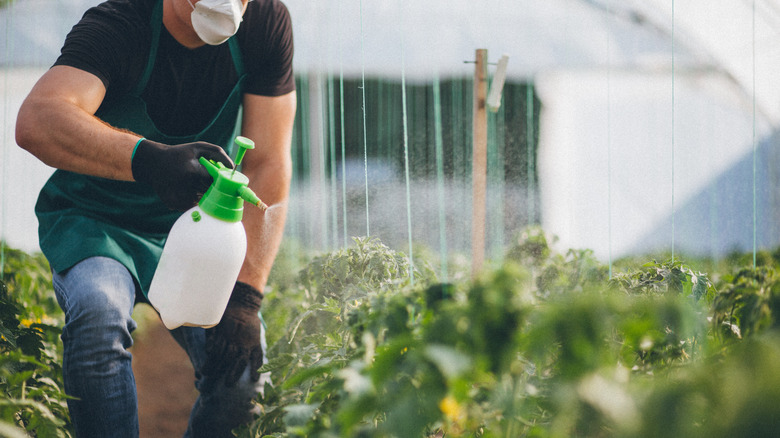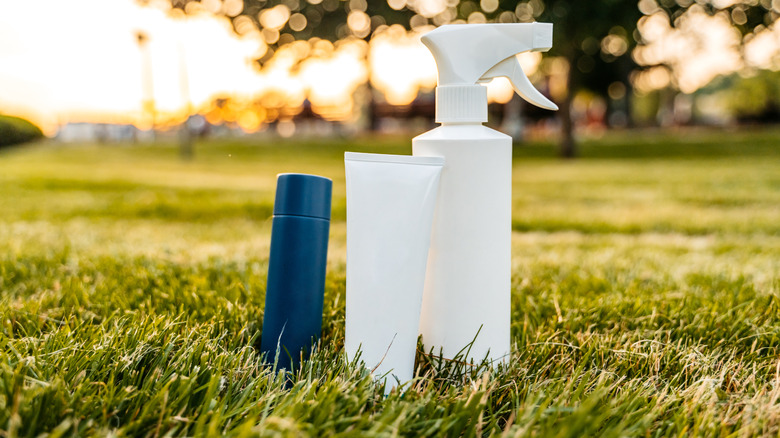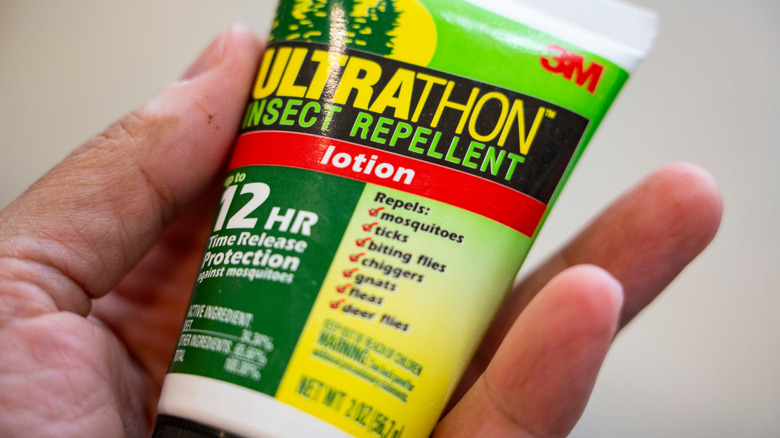Is It Safe To Use Bug Spray To Keep Pests Off Of Plants In The Garden?
Navigating the world of garden pest control can be tricky, especially when considering the use of bug sprays. Many of these sprays contain DEET, or N,N-Diethyl-meta-toluamide, primarily designed for human skin to ward off mosquito bites and not intended for plant use. This distinction is crucial because what protects us from pests might not be so kind to our plants. With its widespread reputation as an effective mosquito repellent, it's tempting to use DEET liberally in your garden to ward off pests. However, doing so without understanding its impact could have unintended consequences.
When applying DEET to plants, you introduce them to a substance with potential herbicidal or weedkiller properties. This means DEET can act like contact herbicides, such as Liberty or Paraquat, known to harm or kill plants. These herbicides don't discriminate; they affect a wide range of plants, not just the weeds they're intended to target. This herbicidal aspect of DEET poses a significant risk to your garden. It's like using a sledgehammer when a scalpel is needed—the collateral damage can be extensive. As a gardener, you're constantly balancing the need to protect your plants from pests with keeping them healthy and thriving, and misusing DEET tips this balance unfavorably. In this context, it's vital to remember that your garden is a delicate ecosystem. Every intervention, be it for pest control or otherwise, should be carefully considered.
DEET's adverse effects on grass and other plants
While DEET's prowess in repelling mosquitoes is well-known, its harmful impact on certain plants, especially grass, warrants attention. An article from Iowa State University sheds light on this aspect, particularly concerning Kentucky bluegrass. The individual involved sprayed DEET on their feet while standing on a lawn. The result? The sprayed areas turned brown and died, except the spot their feet covered, and thus, the spray didn't reach. This incident isn't an isolated one. On the National Gardening Association's forum, one gardener noted that after applying a tick and mosquito spray treatment on their yard, which included DEET, they observed a worrying change. The following day, a significant portion of their plants exhibited signs of burning and wilting.
DEET's chemical composition, which is beneficial for repelling insects on human skin, has a corrosive effect on plant tissues. This reaction can be likened to an herbicide injury, a common herbicide issue (via Oklahoma State University). In some cases, the plant's surface cells can get damaged, leading to browning, wilting, or even the death of the plant. The damage can be more than just cosmetic; it may cause chlorosis and impair the plant's ability to photosynthesize, ultimately affecting its overall health and growth. These observations emphasize a crucial point for gardeners: DEET is not plant-friendly. Its application, even indirectly, can lead to detrimental effects on your garden's health.
Weighing DEET's safety record against its plant impact
While understanding DEET's harmful effects on plants is crucial, it's equally important to acknowledge its proven safety record as a human repellent. A 2020 study in the Malaria Journal highlights an interesting contrast and underscores a vital point: There is a lot of research to support DEET's safety for humans. According to the study, it is one of the most effective and safest repellents, surpassing many natural alternatives. Yet, this doesn't diminish the caution needed when using it around plants since the safest solution for humans isn't necessarily the best for plants. As a gardener, balancing the need to protect yourself from pests while preserving your plants' health is a delicate task.
So, what's the takeaway for you as a gardener? To safely and effectively manage pests in your garden, using products specifically designed for that purpose is advisable. Pesticides labeled as safe for plants should be your go-to option, as they come with instructions tailored to protect plant health. But if you insist on using DEET, the key is to use it judiciously and with awareness. Consider applying it away from plant areas or choosing plant-safe repellents.
Additionally, explore alternatives, like diatomaceous earth, for plant protection. This natural substance, made from fossilized algae, offers a plant-friendly way to ward off pests without the harsh effects of DEET. It's about finding the right tool for the job—in this case, a solution that safeguards your comfort and your garden's well-being.


